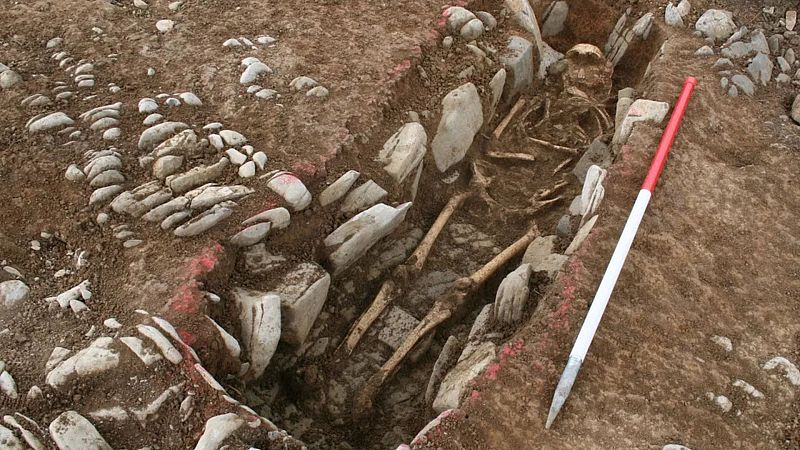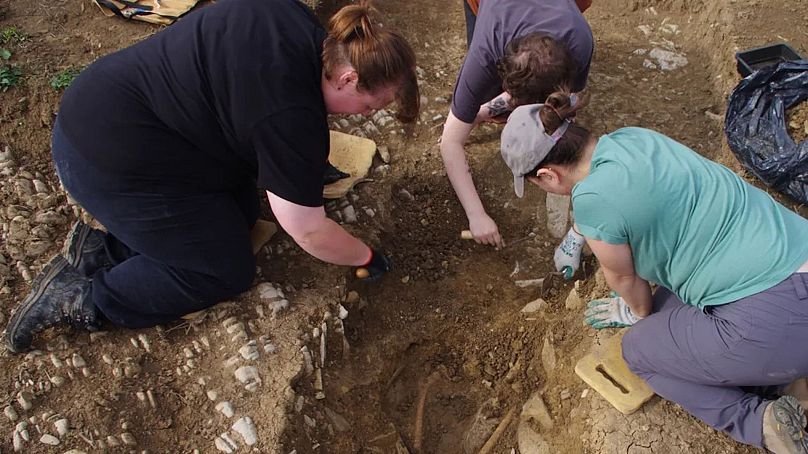
Discovered last year near Cardiff Airport in Wales, a rare 6th or 7th-century site revealed dozens of skeletons in unusual positions alongside several surprising artefacts - leaving archaeologists scratching their heads.
Now, recent findings deepen the mystery as research shows most of those buried were women, with their bones showing signs of manual labour, yet also evidence of wealth and luxury.
A particularly surprising discovery is the body of a woman tossed into a ditch, contrasting with the others buried with great care.
"Every time we think we understand something, something else crops up and the picture gets more intriguing," Andy Seaman from Cardiff University, told the BBC.
Excavation of about half the site, located in a field at Fonmon Castle, has uncovered 39 adult skeletons, nearly all female except for one. Dr. Seaman remains unsure of the significance, suggesting it may represent a particular community or a specific section of a larger cemetery.

Two children's skeletons were also found, an unexpectedly low number given the high infant mortality rate of the time. Their graves have peculiar features, including darker, more organic backfill, hinting at a delay between their burial and that of the adults.
Artefacts found at the site included shards of pottery and fine etched glass. The glass, likely imported from the Levant and Southern France, suggests the community held significant status.
Each person was buried with care, some laid flat, others crouching, all facing east to west. The woman in the ditch remains an anomaly, possibly an outcast or criminal. Her bones are to be researched at the lab at Cardiff University.
"We're hoping to tell the story of the individuals within the cemetery, but also the broader community," Seaman told the BBC. "We know a lot about the lives of kings and queens, but much less about everyday people. And never before really have we been able to explore a single community in so much detail and all the interesting inter-relationships."







